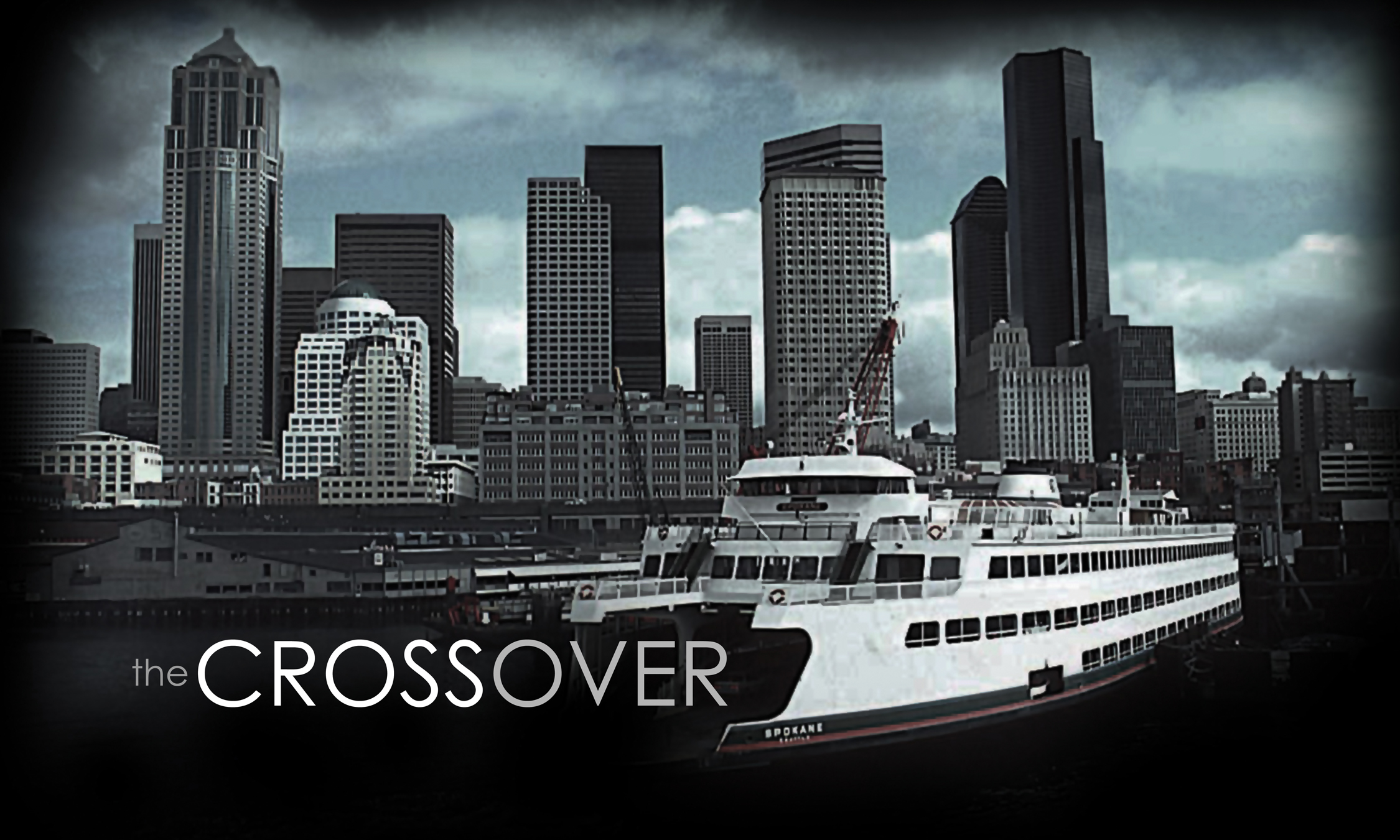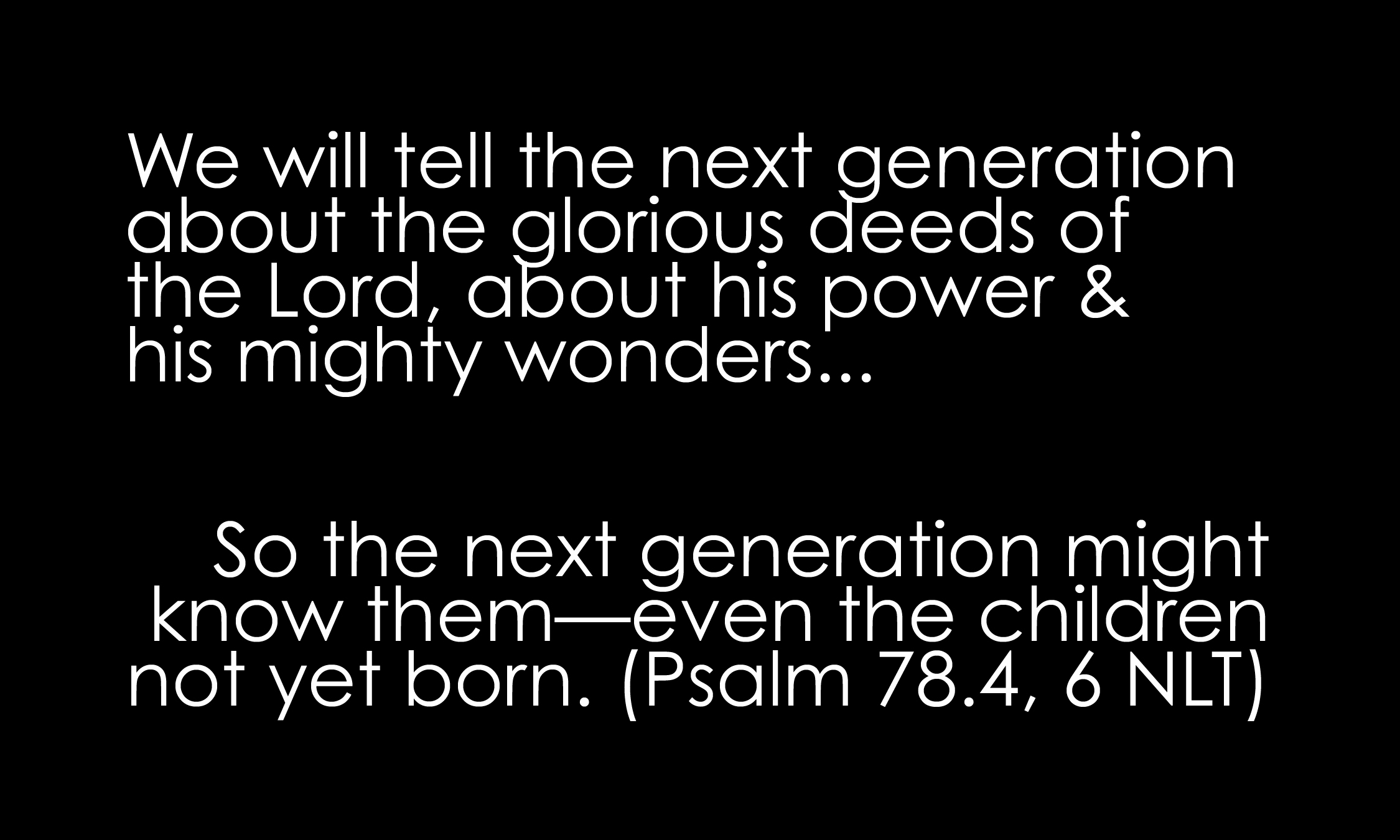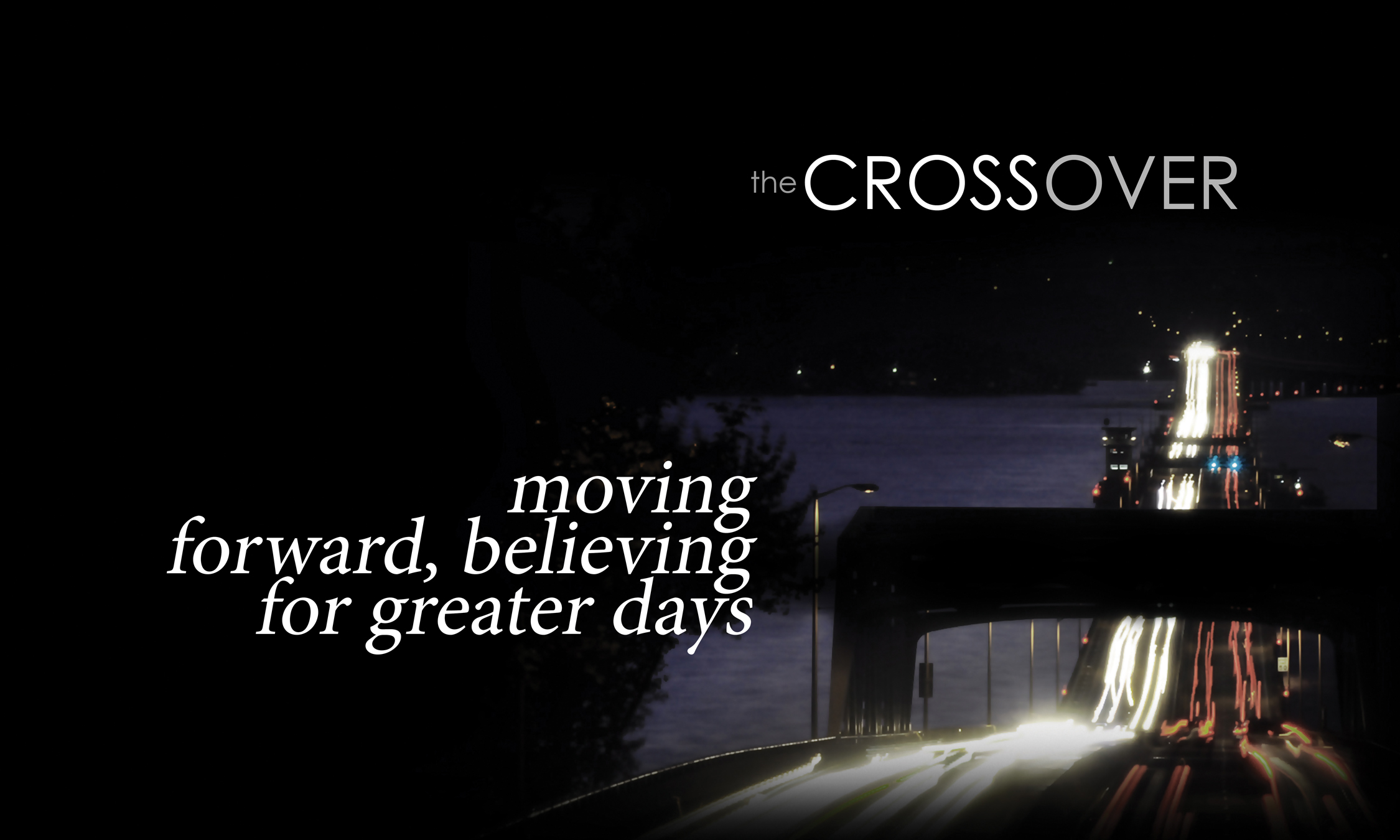The measure of our impact isn’t in what we have done, but in what those who come after us are able to do.
Our vision must be generational, reaching beyond what is good for us—to what is best for future generations.
Ken Malmin recently said “It’s the second or third generation in a church that is the true test of how wise the first generation was.”
In the story of Israel crossing over into their Promised Land, only two of the twelve original “spies” made it in to the new territory (Joshua and Caleb).
The other spies, along with that entire generation, spent their lives in the desert.
They didn’t want to cross over.
They were scared of the new territory.
They’d become comfortable where they were.
They’d lost their sense of adventure.
Their vision wasn’t future-focused.
They cared more about avoiding new challenges than setting up the next generation for success.
But God hadn’t led his people out into the wilderness so they could stay there—He was taking them into the new territory, the Promised Land…
Joshua led the charge—he fought for the land and he organized the distribution of that land.
Joshua made sure the next generation received their inheritance.
At this point, Joshua and Caleb were much older than everyone else.
They weren’t fighting for themselves anymore.
They were fighting for the next generation.
In contrast to Joshua and Caleb, Absalom (another Bible character from the time of the kings) didn’t think generationally…
His vision was all about himself.
Absalom was kind of like Narcissus—he was in love with himself.
The Bible says when he cut his hair, he would have it weighed. Uh, that’s just weird!
“During his lifetime, Absalom had built a monument to himself in the King’s Valley, for he said, ‘I have no son to carry on my name.’ He named the monument after himself, and it is known as Absalom’s Monument…” (2 Samuel 18.18 NLT)
Yikes! A monument to self.
When we fail to see generationally, it’s easy to make everything about self.
When we make everything about self, we build a lifeless monument—just like Absalom did.
The way I see it, we have a choice…
We can either build a lifeless monument to self or leave a lasting legacy.
Let’s be like Joshua and Caleb: let’s fight for the next generation and be used by God to leave a lasting legacy.











